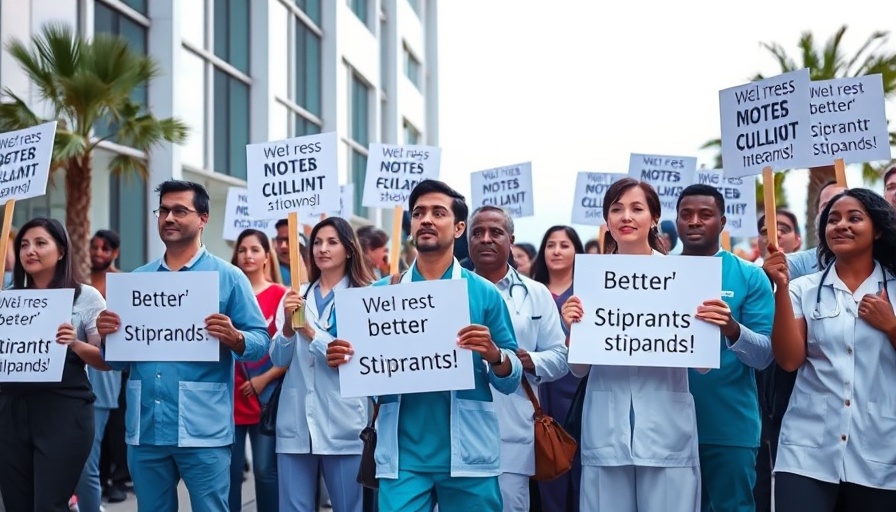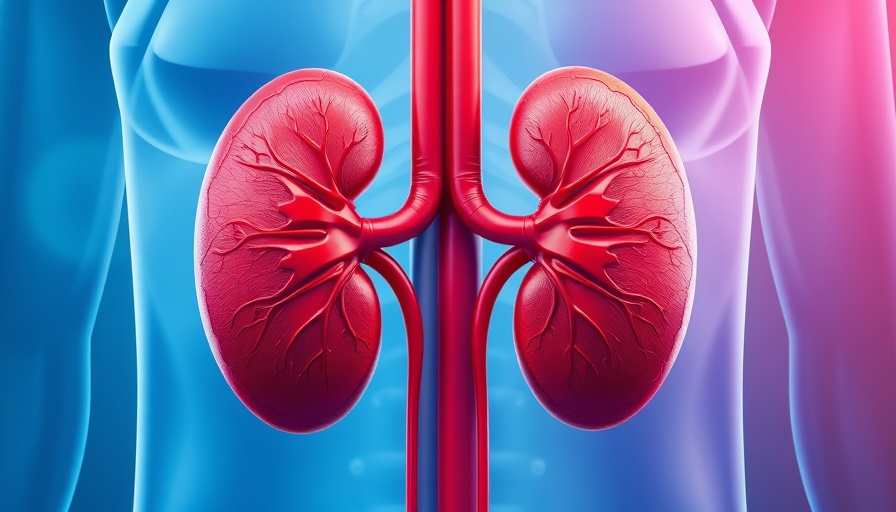
Understanding the Strike: What Bihar's MBBS Interns Are Demanding
Across the state of Bihar, medical interns are taking a strong stance in their call for change. With a demand to increase their monthly stipend to INR 40,000, the interns are not only advocating for better compensation but also for recognition of their hard work during an incredibly demanding phase of their medical careers. Interns often find themselves juggling extended hours in busy hospitals while also trying to manage their studies and personal lives. This strike resonates with many, as it highlights a broader issue of fair pay for those in the healthcare sector.
The Importance of Fair Compensation in Healthcare
It’s not just about the numbers; fair compensation is vital in ensuring that healthcare professionals feel valued. Strikes such as these bring critical attention to a systemic problem: inadequacies in stipend structures across various states in India. Many interns across the country often receive minimal pay, causing financial strain. Telemedicine and evolving healthcare practices require talented professionals who feel secure in their livelihoods. Recognizing their contributions is essential for fostering a committed and enthusiastic workforce.
Impact on Healthcare Delivery
The ongoing strike of Bihar's MBBS interns sheds light on how their dissatisfaction may affect healthcare delivery in the region. Interns are crucial to the operational backbone of hospitals, providing essential services while learning on the job. Disruptions due to strikes can lead to overburdened healthcare systems, where patients may suffer from reduced care access and increased wait times. This effectively underscores the interconnectedness of intern welfare and patient care.
Comparative Insights: Interns Beyond Bihar
This situation isn’t isolated to Bihar; interns across various states face similar predicaments. In neighboring states, interns have organized strikes and protests with similar demands, leading to varying degrees of success. By examining these cases, Bihar’s interns can gain insights into strategies that could be effective for their own movement. It highlights the potential power of solidarity among medical interns.
Looking Ahead: How Can Change Be Achieved?
As Bihar’s MBBS interns continue their strike, the question arises: how can meaningful change be actualized? Engaging with administration, garnering public support, and lobbying for policy changes can be effective strategies. Furthermore, the introduction of a unified platform where interns can share their experiences and demands might lead to more sustained advocacy efforts.
The Role of Community Support
As these medical interns take a stand, community support can play an essential role in amplifying their message. Local residents, patients, and health workers can support the interns by voicing their concerns and advocating for equitable pay structures. Awareness campaigns and social media outreach can help gather momentum, creating a more significant impact on decision-makers.
In conclusion, the strike of Bihar's MBBS interns highlights the pressing need for equitable treatment in the healthcare sector. By pursuing discussions and engaging with their communities, these young professionals can inspire systemic change while ensuring that quality healthcare remains accessible for all.
 Add Row
Add Row  Add
Add 




Write A Comment